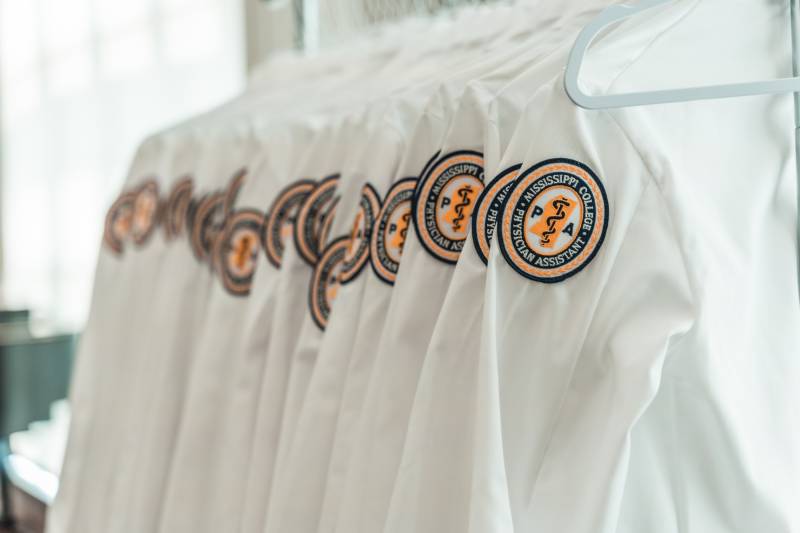ºÚ°µ±¬ÁÏ PA students reach patient care milestone at White Coat Ceremony

D’Artagnan Kilgore has seen several of his friends graduate from Physician Assistant school, but he’s never attended what some consider the most memorable milestone of a PA student’s journey: the White Coat Ceremony.
When the first-year PA student from Chubbuck, Idaho, witnesses his initial PA White Coat Ceremony at ºÚ°µ±¬ÁÏ, scheduled for 3 p.m. on Thursday, Aug. 28, at Provine Chapel, he’ll be a participant.
“The White Coat Ceremony is a celebration of all that my classmates and I have accomplished so far,” said Kilgore, who obtained his bachelor’s degree in exercise science from Idaho State University. “It’s a symbolic representation of our commitment to patient care. As we put those white coats on, we’re symbolically taking on the responsibility of being a future medical provider, and all that entails.”
Rachelle Dye, associate professor, department chair and program director of Physician Assistant Studies at MC, said the ceremony is a rite of passage that marks the point where PA students have earned the right to advance to learning detailed aspects of clinical medicine.
“By accepting the white coat, the student affirms their commitment to patient care, lifelong learning and professional integrity,” Dye said. “It is not just a piece of clothing, but a symbol of trust, compassion and accountability.”
The PA class is making the transition between the 15-month classroom portion of the MC PA Program to the 15-month clinical portion, where they will complete clinical rotations at hospitals, clinics and physician offices. Dye said the PA students will wear their coats when they attend lectures, perform simulated patient encounters and volunteer in medical clinics.
“For students, the White Coat Ceremony validates the hard work, sacrifices and perseverance they have shown to reach this point,” she said. “It offers an opportunity to reflect on the values that drew them to medicine: empathy, service and a desire to improve lives.”
Physician Assistants are medical professionals who diagnose illness, develop and manage treatment plans, prescribe medications, and often serve as a patient’s principal health care provider. With thousands of hours of medical training, PAs are versatile and collaborative. They practice in every state and in every medical setting and specialty, improving health care access and quality.
Dye said the White Coat Ceremony is important to the PA profession because it serves as a reaffirmation of the core values and ethical standards that guide PA practice.
“It fosters a sense of unity and shared mission among students, educators and practicing clinicians,” she said. “As PAs are increasingly vital to the health care system, the White Coat Ceremony underscores the commitment to professionalism, respect for patient autonomy and dedication to collaborative, evidence-based care. It also publicly demonstrates the profession's continued emphasis on patient-centeredness and integrity.
“Ultimately, the PA White Coat Ceremony is a powerful tradition that bridges the past, present and future of the profession, honoring those who came before, celebrating those currently learning, and preparing them to become trusted stewards of health for the communities they will serve.”
In addition to receiving their white coats, the PA students will take the Physician Assistant Oath, pledging to perform the duties of a PA and providing for the safety, welfare and dignity of all human beings.
Sign-up For Our Newsletter
Get the latest news about ºÚ°µ±¬ÁÏ delivered right to your inbox by subscribing to the Along College Street e-newsletter.

